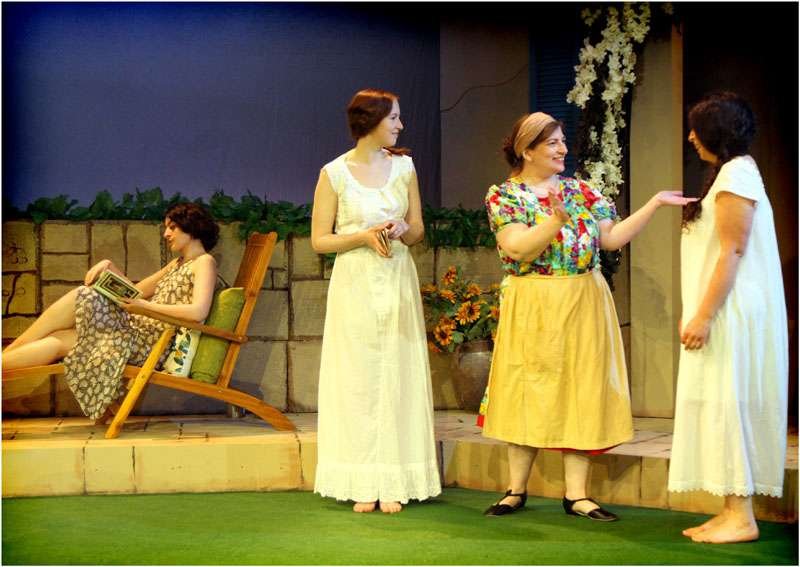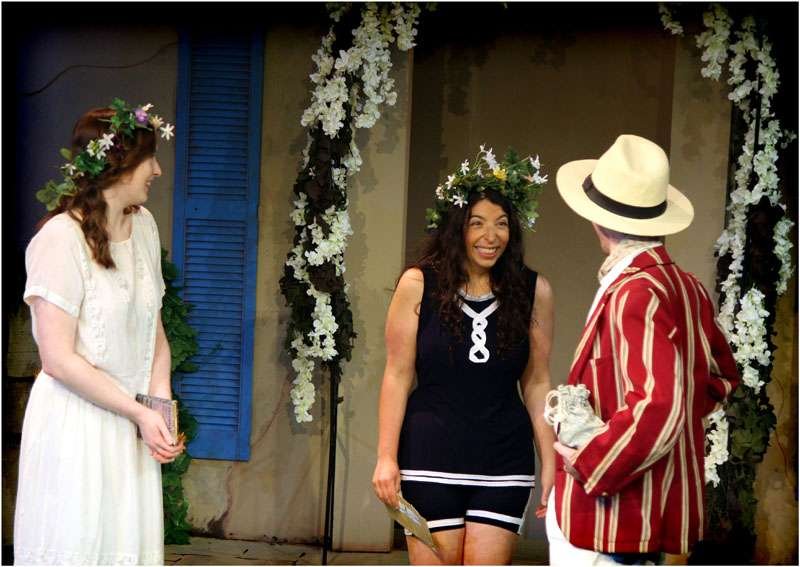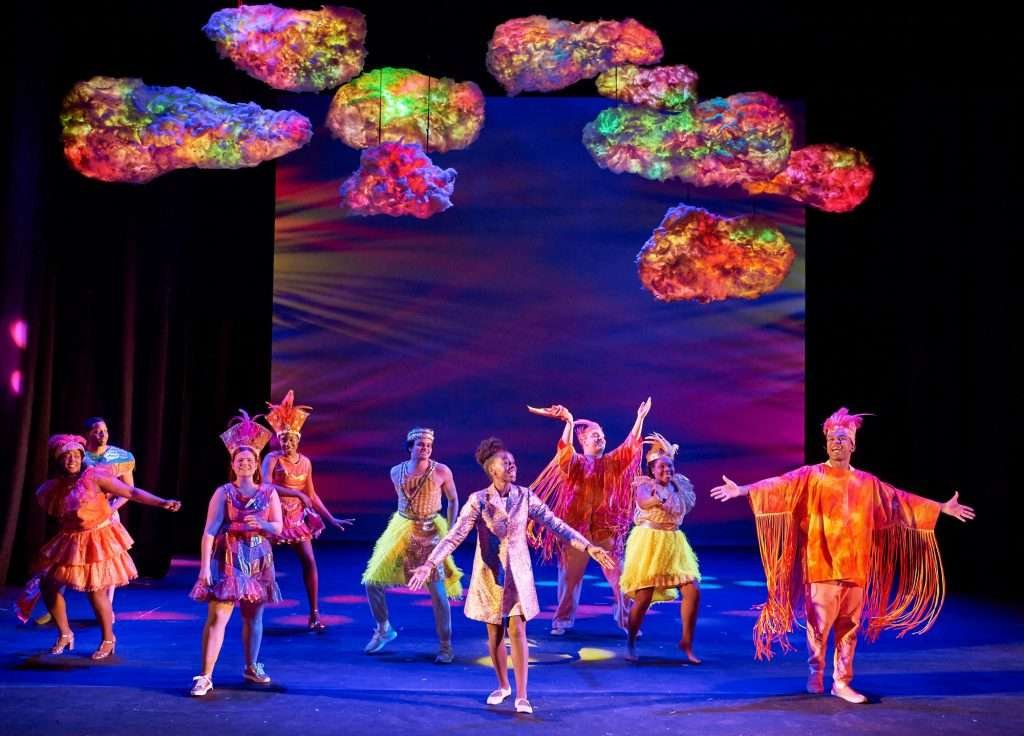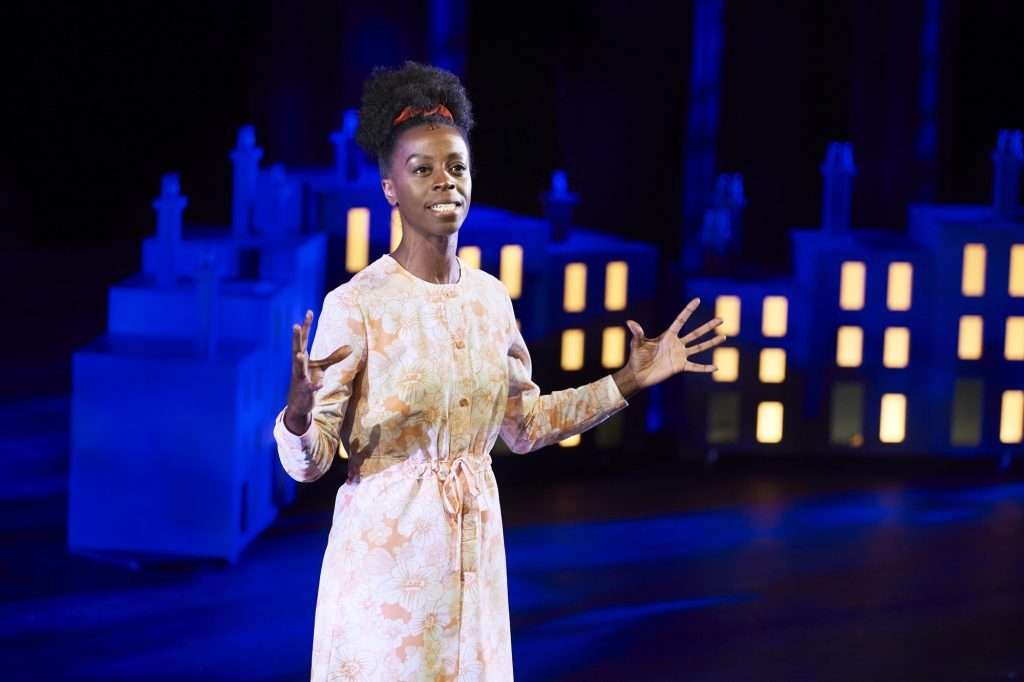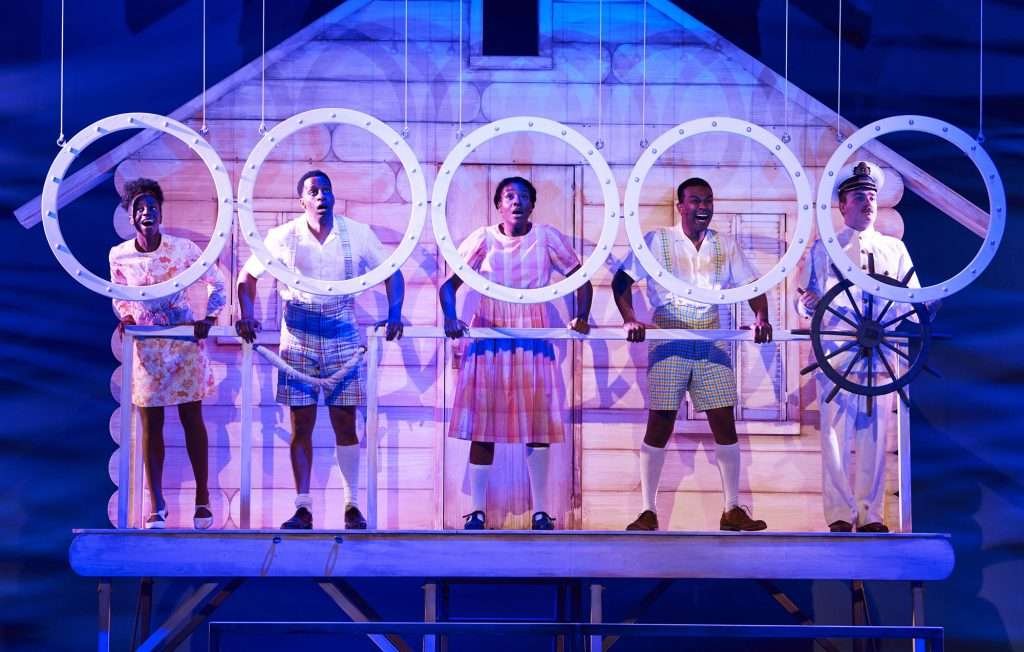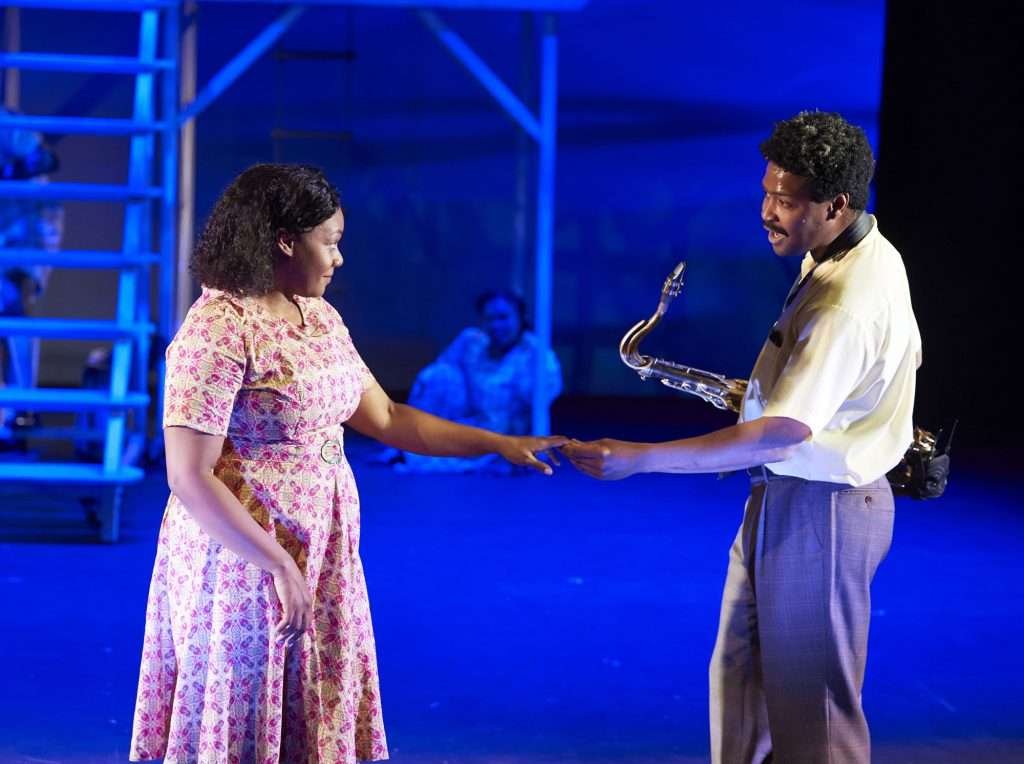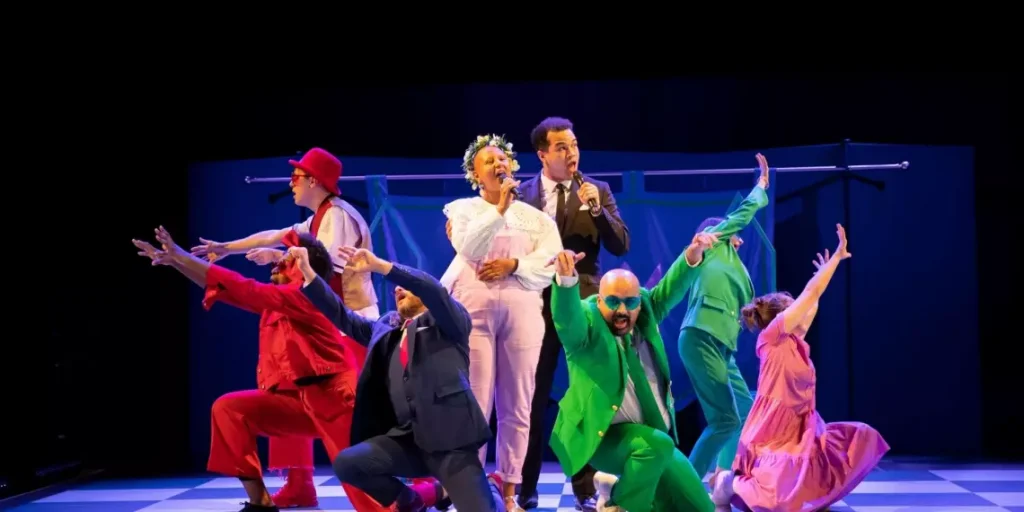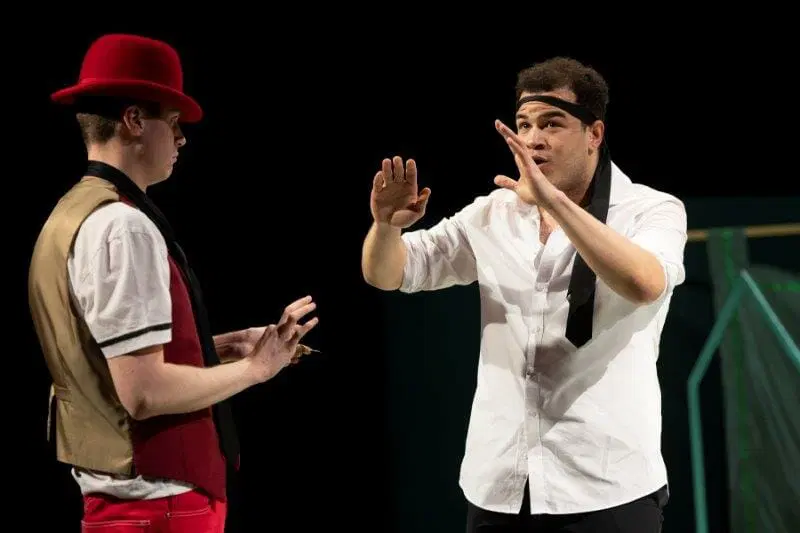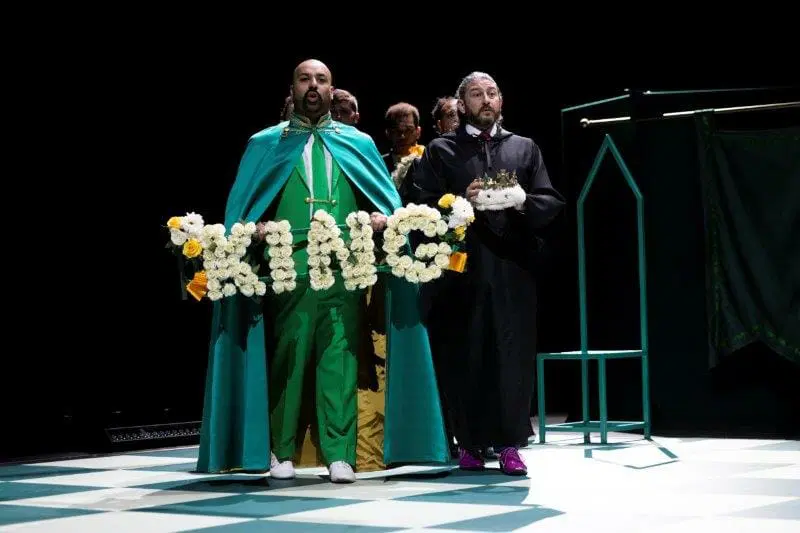Maria Theresia von Paradis (1759-1824), roughly contemporary with Beethoven, was an Austrian musician. Highly acclaimed in her day as a pianist and composer, almost all her music is now lost although most of us are familiar with her Sicilienne. She was blind and, at the behest of her parents, underwent several appalling surgical attempts to restore her sight. She may have had affairs with both Mozart and Salieri – there are hints in letters. This is the story told by Errollyn Wallen’s new opera with libretto by Nicola Werenowska.
But there’s much more to it than that. This is production from Graeae, the theatre company – now 41 years old – which cultivates and champions the best in deaf, disabled and neurodivergent talent on the UK and international stages. The Paradis Files is Graeae’s first opera and is the most inclusive show I’ve ever seen.
It starts with cast and band members introducing themselves orally and everything they say is signed integrally by someone on stage. They also wittily describe their clothes, size and the set. Each band member plays a flourish or a couple of bars on his or her instrument before disappearing upstage to the band area. Conductor, Andrea Brown says a few words too. Her podium is downstage right so that both band and cast can see her – or one of the on-stand monitor screens at the side of the stage. Once the show starts there’s an overstage screen for captions which are artistically presented in a timely font, getting larger to stress, for instance, incredulity.
The piece is scored for a cast of six who work with two performance interpreters whose presence brings another dimension. Max Marchewicz, for example, who identifies in the programme biographies as “a queer, disabled, chronically ill and disabled person” signs with moving, balletic sensitivity and I loved the blue hair. Meanwhile Chandrika Gopalakrishnan lithely makes every nuance clear, sometimes climbing inside upstage piano which is part of the set. Both are fine actors whose reactions to what is going on help to drive the narrative forward.
Every inch an opera – there is no spoken dialogue – The Paradis Files, which reference lots of other works and composers never settles to a single style but neither is it pastiche. In England Paradis was known as “The Blind Enchantress” and there’s a lovely Mozartian riff on those words. And we end in Rossini-esque mode because it’s an upbeat story
Bethan Langford, who cheerfully tells the audience at the beginning “I’m visually impaired” brings warmth and depth to Paradis. Other actors lead her unobtrusively round the rather busy set and she sits at the piano stool in several scenes. Langford has a rich mezzo voice with some beautiful navy blue notes in the lower register. It blends particularly well with Maureen Braithwaite’s soprano. Braithwaite plays Paradis’s difficult, determined, troubled mother – a complex character. Ella Taylor finds lots of saucy kindness in Gerda the maid and her soprano voice is attractive too – although this gritty maid – feisty, trans and kind – is no Susanah.
Wallen’s score makes a great play with the “gossips”. In any other art form we’d call them the “ensemble” with minor characters emerging from their ranks. Here they come somewhere between an operatic and a Greek chorus – commenting on the action and furthering the narrative. And, of course, although we’re in the 18th and early nineteenth centuries this is a 2022 piece so Wallen has a occasional fun with cross rhythms, jazz and rock borrowings so that sometimes the gossips dance incongruously as they sing. It’s great fun.
The Paradis Files is directed by Jenny Sealey, Graeae’s artistic director and she knows, really knows, how to create stunning theatre. This piece is stonkingly good: intelligent, funny, moving, beautifully sung and skilfully staged. If this website required me to provide a star rating this show would be a five.
Co-produced by Curve, Leicester and opened there before two performances at Southbank Centre, The Paradis Files now tours until 12 May to Milton Keynes, Colchester, Hull, Perth, Cardiff and Sheffield. All details at www.graeae.org.
First published by Lark Reviews: https://www.larkreviews.co.uk/?p=6791





